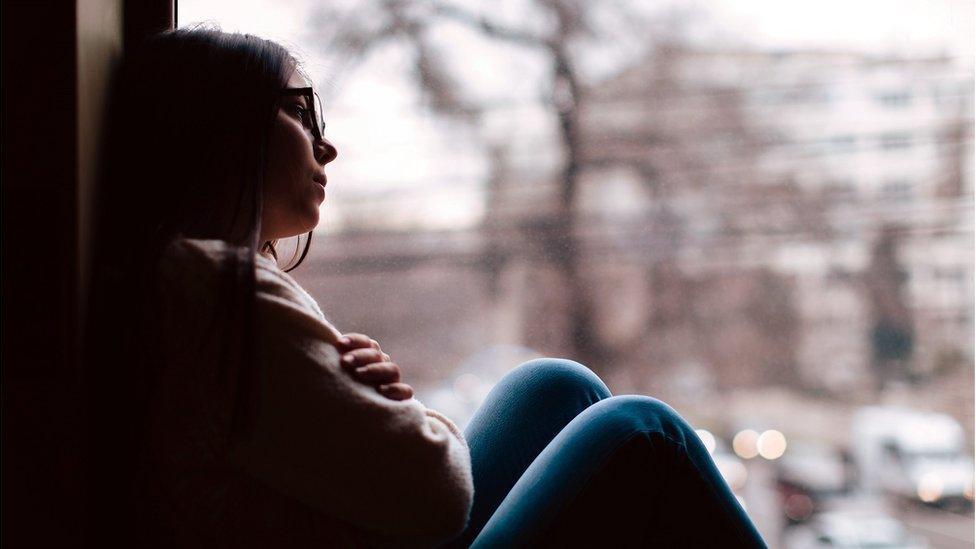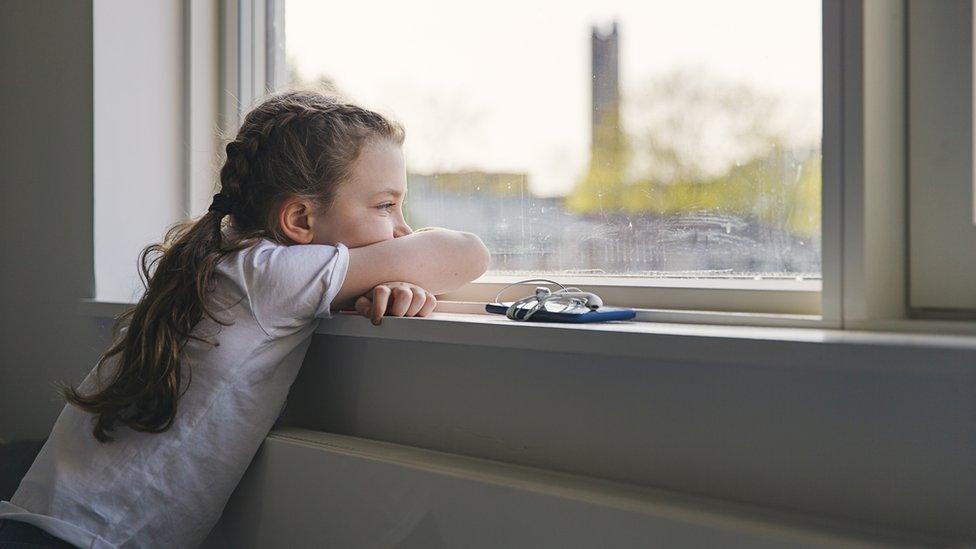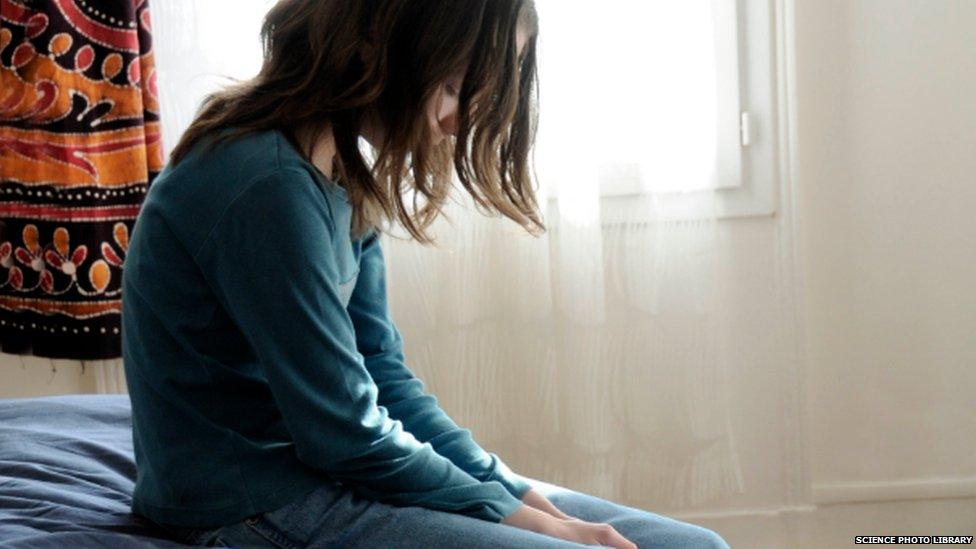Childhood trauma experienced by four in 10 NI young people
- Published

Almost four in every 10 young people in Northern Ireland have experienced some form of childhood trauma.
That is according to a just-published study from researchers at Queen's University of Belfast (QUB) and Ulster University (UU).
It suggested that boys were more likely to report being threatened, hurt, witnessing or experiencing violence.
Girls, meanwhile, were more likely to report being sexually harassed online compared to boys.
The study in the prevalence of childhood trauma in Northern Ireland has just been published in the Journal of Child and Adolescent Trauma.
Its findings are based on information from a representative sample of almost 1,300 young people in Northern Ireland aged 11 to 19.
It follows previous research which found anxiety and depression is 25% more common in children and young people in Northern Ireland compared to other parts of the UK.
Trauma is defined as "exposure to an extremely threatening or horrific event or series of events".
Traumatic events in childhood can include experiencing or witnessing violence at school or at home, online sexual harassment, sexual assault or suffering a serious injury.
Trauma exposure
Of almost 1,300 young people who took part in the UU and QUB study, 478 reported experiencing at least one traumatic event.
However, about one in five (259) had experienced multiple traumatic events.
The authors said that indicated exposure to trauma was "more prevalent among Northern Irish youths compared to other UK nations".
Similar studies in England and Wales have indicated a lower proportion of young people have experienced childhood trauma compared to Northern Ireland.
Among the potential explanations for higher rates of trauma in Northern Ireland were the continuing effects of the Troubles, including "marginalisation, socio-economic adversity, social deprivation as well as intermittent instances of inter-community violence," the study said.
However, the UU and QUB study found little evidence that young people were more likely to experience trauma if their parents had experienced trauma during the Troubles.
The study's authors therefore said more detailed research was needed into whether parental trauma during the Troubles increased the risk of trauma for children today.
However, having a parent with "mental health difficulties" increased the risk of a young person "witnessing violence in the family and online sexual harassment", the research suggested.
"It is possible that parental psychopathology may increase a young person's risk to online sexual harassment via poorer monitoring of the young person and their online activity."
While boys in the study were more likely to report being exposed to violence, girls were more likely to report being sexually harassed online.
Affect of Covid-19 restrictions
While relatively few young people who took part in the research reported experiencing sexual abuse, the authors said that could be because some might not have wanted to disclose what had happened to them.
The study also suggested that young people from deprived backgrounds or who had been in "out-of-home care" were more at risk of experiencing trauma.
The research was carried out by Dr Lisa Bunting from QUB and Professor Mark Shevlin, Professor Jamie Murphy, Dr Orla McBride and Dr Enya Redican - all from Ulster University.
The Department of Education (DE) has recently launched a training programme for school staff to help raise awareness of the effect of trauma on children.
In response, some school principals said they expect more of their pupils to have experienced trauma due to the impact of the Covid-19 pandemic and restrictions.
- Published29 November 2021

- Published19 October 2020
